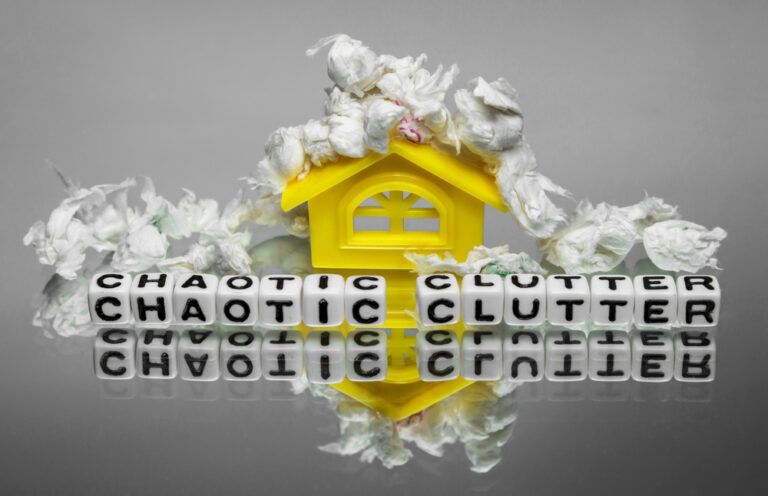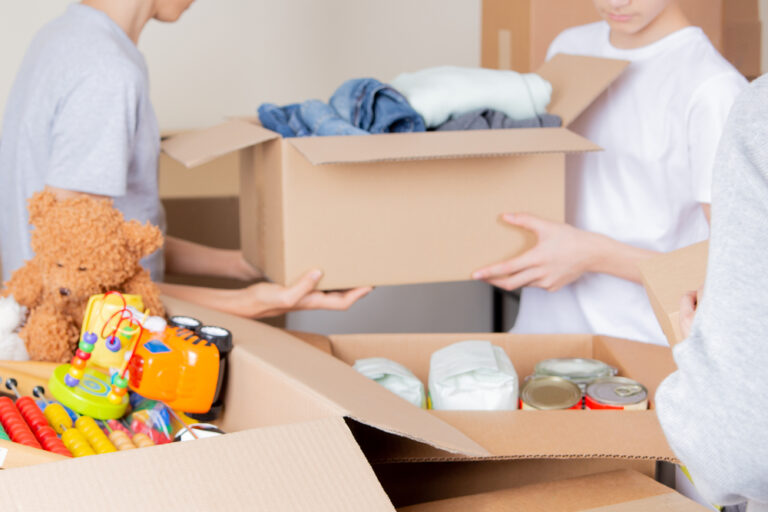4 Reasons Why You Are Indecisive When Decluttering (And How To Overcome Them)
Are you someone who typically takes a long time to make decisions in daily life? Do you dread the decision-making process, especially when it comes to important events?
If so, then decluttering your home must be a daunting task for you.
But even if you’re generally a decisive person, when faced with piles and piles of clutter, it’s easy to feel overwhelmed just by thinking about the numerous decisions you need to make.
If you are looking for ways to be ruthless and make decisions quickly when decluttering your home, you’ve come to the right place.
In this article, I will share the 4 possible reasons that are preventing you from being ruthless when decluttering, and provide the solutions to each one.
So, if you’re ready, let’s jump in!
Why are you so indecisive When decluttering?
Here are 4 possible reasons:
- You are afraid of making the wrong decisions and regretting them later
- You are overwhelmed
- You are emotionally attached to your belongings
- You lack of clarity and purpose for decluttering
Let’s take a look at them one by one, and find the appropriate solutions for each.
1. You worry you’ll Regret your decisions later on
Are you worried about making the wrong decluttering decisions, and regret later?
I can totally relate from my decluttering experience when preparing for my overseas move. Despite setting a clear goal of keeping only valuable, sentimental, and hard-to-replace items, I still felt immense pressure during the selection process, afraid of making the wrong decisions and regretting them later.
To avoid the possibility of declutter regrets, here are some actions you can take:
Solution 1: Put your Uncertain items in a noticeable place of your home
Place your uncertain item in a designated “Maybe” box. But keep in mind: don’t use the Maybe box as an excuse to procrastinate/avoid making decisions.
Here is the important question: What do you do with the Maybe box full of undecided items?
I used to follow the method of setting a deadline: if, by the deadline, you don’t need or miss anything from the box, simply declutter all items in the box.
But it didn’t work well for me. When I opened the box on deadline day, it felt like discovering a bunch of new things I might use, and I once again felt hesitant to let go.
So I’m going to suggest something that’s worked for me:
Place your unsure items in a clear Tupperware container in a visible spot in your house, such as on the kitchen counters or in the middle of the living room. This way, you’ll pass by them frequently and see them.
For your “maybe” clothes, hang them in the center of the closet so you see them every morning when getting dressed.
Every time you see these “Maybe” items, you’re prompted to re-evaluate your needs for them. When you have given enough thought to them, you will feel ready and confident about your decision to either keep or let go.
And if your decision is to let go, you won’t worry about regretting it because it’s a well-thought-out decision.
Solution 2: Set clear criteria before the decluttering session
If you are worried about regretting your decisions, how about making some important decisions BEFORE you start decluttering?
Think thoroughly and set specific guidelines about what to get rid of. This way you can follow the criteria and be more focused.
Some examples are:
- I will declutter clothes that are 2 sizes smaller than my current size.
- I will only keep one of the kitchen tools if I find duplicates.
- I will get rid of skincare and cosmetic products that I haven’t used for more than 1 year.
Solution 3: Mentally prepare for the worst-case scenario

If your mind is buzzing with ‘what if‘ scenarios, try thinking about how you will handle the worst-case scenarios.
Ask yourself questions like:
- If I ever need this item again, where will I re-purchase it?
- How much trouble will I go through, or how much to spend if I need to repurchase it?
- where can I rent or borrow?
- How can I find a workaround so that I don’t need it?
When you logically think through the worst-case scenarios, you might realize that what you were worried about is really not much of a big deal. And that you can confidently handle the situation if it ever happens.
2. you Are Overwhelmed
When you are overwhelmed, you are unlikely to focus and make decisions. Here are 2 ways to handle the overwhelming feeling:
Solution #1: Work on the “easiest” part of your home
Start from an area that is ‘easy’. It can be a place that is least cluttered such as a guest room closet, a small physical space such as a single drawer, or a room that has the least amount of sentimental items such as the bathroom.
This way, you’re breaking things down into manageable steps, and it can feel a lot less overwhelming.
Solution #2: Don’t Make A Even Bigger Mess
Here’s another helpful tip: DON’T empty out your entire closet or drawers before you start decluttering. The visual look of the clutter pile can make you feel overwhelmed.
Instead, grab just one item at a time from your closet or drawers, and put it in either ‘keep’, ‘donate’ or ‘trash’ boxes.
3. You are Emotionally Attached to your Stuff
The third reason why you become indecisive when it comes to decluttering is emotional attachment.
Sometimes we tend to attach more than just practical value to our belongings; we infuse them with emotions and memories. We endow them with a piece of our hearts.
For the longest time, I couldn’t bring myself to part with my old suits, even well after I had become a stay-at-home mom.
I thought of those suits as a representation of a significant chapter in my life—the years of my working career. It was a time filled with accomplishment and personal growth, and I just couldn’t bear to let go of that feeling.
It took a profound realization, one I stumbled upon while reading Fumio Sasaki’s book, “Goodbye, Things,” to break free from this emotional tether. Sasaki wisely pointed out that our memories reside in our hearts, not in our possessions.
I also realized that, when you have a multitude of sentimental items, it often feels like nothing is truly special. Try to be selective and keep only those few pieces that hold the most profound meaning for you.
You can take advantage of the technology and preserve those precious memories by taking photos of the item or creating a digital scrapbook. You can also get creative and turn these sentimental items into display art.
This way, you still get to hold onto the memory without holding onto the physical clutter.
4. You don’t have a clear Goal
When you don’t have a defined purpose, decluttering can feel aimless, and decision-making can be haphazard.

Before you start, find your ‘WHY’ for decluttering. Be as specific as possible.
Do you want to get dressed more quickly in the morning? Do you want to create more space so your children can play? Do you want to cook in your clutter-free kitchen? Or perhaps you’re on a mission to create a wardrobe that truly reflects your style.
You are decluttering because your friends are doing it? Peer pressure is probably not a good WHY.
Once you’ve got that decluttering goal firmly in mind, you can establish your very own set of guidelines and rules about what stays and what goes.
conclusion
If you are indecisive when it comes to decluttering your home, there might be 4 possible reasons:
- You worry you might regret your decisions
- You are overwhelmed and can’t think rationally
- You are emotionally attached to your stuff
- You don’t have a clear goal
Recognizing these obstacles is the first step toward overcoming them.
By shifting your mindset, starting small, setting clear objectives and specific criteria, you can navigate the decluttering process with greater ease and ultimately enjoy the benefits of a more organized and peaceful living space.
I hope this article is helpful to you!





